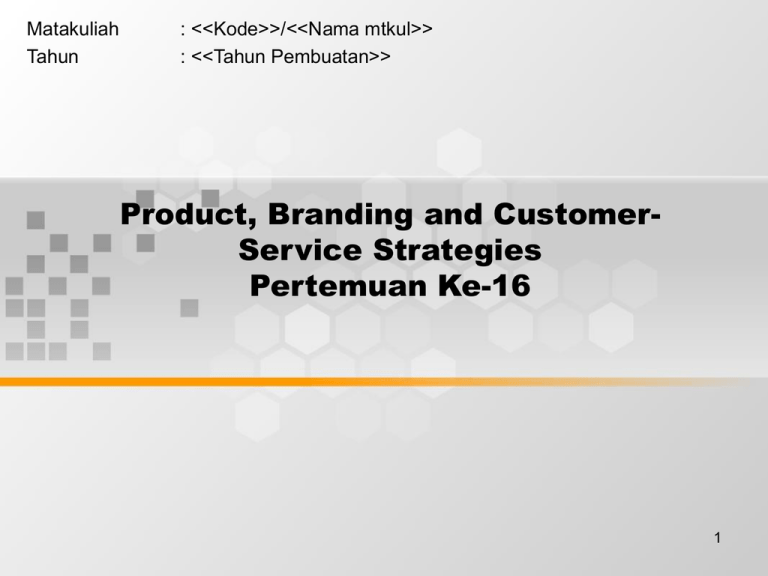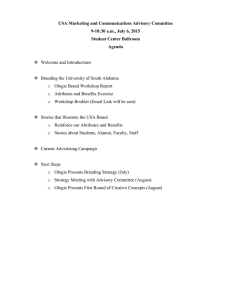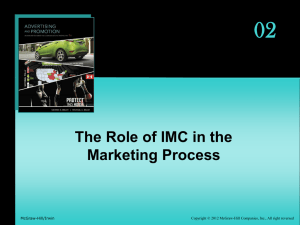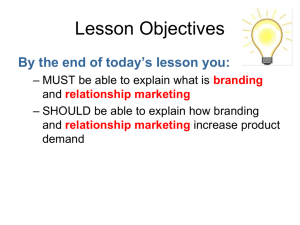Product, Branding and Customer- Service Strategies Pertemuan Ke-16 Matakuliah
advertisement

Matakuliah Tahun : <<Kode>>/<<Nama mtkul>> : <<Tahun Pembuatan>> Product, Branding and CustomerService Strategies Pertemuan Ke-16 1 Branding Strategy • No brand identity, many small and medium sized manufacturers do not have an established brand identity. Typically, the producer of unknown brand concentrates its marketing efforts on wholesalers and retailers. These products may develop consumer loyalty overtime if the user’s experiences with the product are favorable and if it is purchased frequently 2 Branding Strategy • Private branding, the retailer uses its private brand to build store loyalty, since the private brand is associated with the retailer’s store. • Corporate branding, this strategy builds brand identity using the corporate name to identify the entire product offering. Ex; IBM • Product-Line branding, this strategy places a brand name on a line of related products. 3 Branding Strategy • Specific product branding, the strategy of assigning a brand name to a specific product is used by various producers of frequently purchased items. • Combination branding, combination branding benefits from the buyer’s association of the corporate name with the product or line brand name. 4 Brand Identity • Brand extension – Using consumer’s familiarity with an existing brand name in a product class to launch a new product line in another product class.The new line may or may not be closely related to the brand from which it is being extended. • Licensing – The sale of a firm’s brand name to another company for use on a noncompeting product. • Variations in brand loyalty – Loyalty to brands is stronger for products that have distinctive flavors. 5 Customer Service Strategy • The activities included in customer service are requests for product specifications such as performance data, requests for quotation, purchase order processing, order status inquiries, and warranty service. 6 Customer Service Responsibility • Creating an integrated and coordinated customer service strategy requires developing plans and budgets, measuring performance, and assigning responsibility for service. • The different activities required to develop and process an order, typically have no one function or manager responsible for overseeing all the required activities. 7 Conclusions • Branding strategy involves deciding among private branding, corporate branding, productline branding, specific product branding, and combination branding. • The influence of customer service on the buyerseller relationship must be recognized. • Customer service is a process; it involves most of the function in an organization 8





